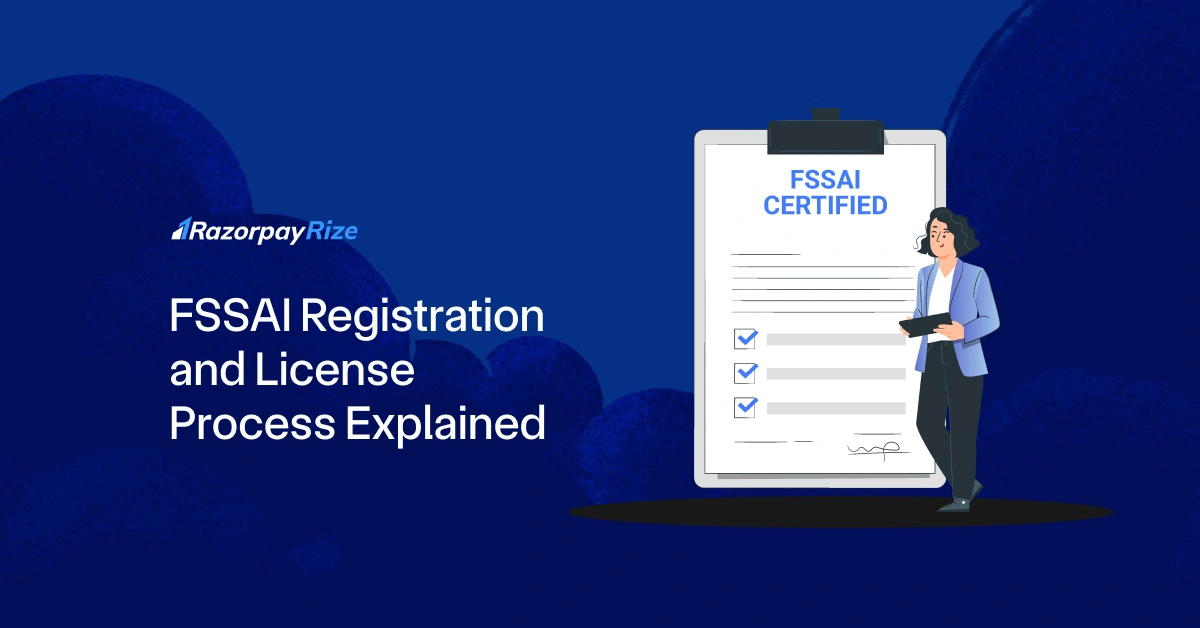Charitable trusts are powerful vehicles for driving social impact. Whether it's providing education to underprivileged children, supporting healthcare initiatives, or promoting cultural and religious values, charitable trusts operate with the sole aim of public welfare. They function as nonprofit entities, helping individuals and organisations contribute meaningfully to society.
Proper legal registration is required to set up a charitable trust. This not only establishes credibility but also enables access to tax benefits and ensures compliance with laws.
In this guide, we’ll explain everything you need to know about charitable trust registration: what it is, how to create one, the benefits, required documents, legal structure options, and a step-by-step registration process.
Table of Contents
What is a Trust?
A trust is a legal arrangement where one party (the trustor or settlor) transfers assets to another (the trustee), who manages them for the benefit of a third party (the beneficiary). Trusts can be:
- Private trusts – Created for specific individuals or groups (like family members).
- Charitable/public trusts – Established to serve the public good through activities in education, healthcare, relief, or religion.
Creation of Trust
Setting up a trust involves a few essential steps:
- Define the purpose – Clearly outline the mission or goal of the trust.
- Draft a Trust Deed – This is the legal document that outlines the trust’s objectives, details of trustees, mode of operations, and more.
- Appoint Trustees – These are individuals who will manage the trust's affairs.
- Identify Beneficiaries – Define who will benefit from the trust.
- Register the Trust – For a charitable trust to be recognized legally and receive tax exemptions, registration with the local authority is crucial.
What is a Charitable Trust?
A charitable trust is a type of public trust established to carry out philanthropic, religious, educational, or social activities. Unlike private trusts, these operate for the benefit of society at large and not for any specific individual or family.
Charitable trusts must be registered under applicable laws, such as the Indian Trusts Act, 1882, or state-specific legislation, to be legally recognised and to enjoy tax benefits.
Benefits of Setting Up a Charitable Trust
Here’s why setting up a charitable trust can be highly beneficial:
- Tax Exemptions: Registered charitable trusts can avail of tax benefits under Sections 12A and 80G of the Income Tax Act.
- Legal Recognition: Gives legitimacy and builds trust among donors and beneficiaries.
- Structured Fund Management: Enables systematic handling of funds and activities.
- Credibility and Transparency: Boosts donor confidence and supports fundraising.
- Long-Term Impact: A legal trust ensures that social efforts continue beyond the lifespan of its founders.
Legal Structure Options for Charitable Trust
When setting up a charitable organisation, you can choose from a few legal structures:
- Public Charitable Trusts – Governed by the Indian Trusts Act or state laws. Ideal for small to mid-sized social initiatives.
- Societies – Registered under the Societies Registration Act, 1860. Suitable for large-scale, membership-based organisations.
- Section 8 Companies – Formed under the Companies Act, 2013, for nonprofit purposes. Best for organisations looking for high compliance standards and credibility.
Depending on your goals, each structure has different compliance requirements, operational flexibility, and advantages.
Documents Required for Registering a Charitable Trust
To register a charitable trust, you’ll typically need the following documents:
- Trust Deed (on non-judicial stamp paper)
- PAN card of the trust and the trustees
- ID and address proof of all trustees (Aadhaar, passport, voter ID)
- Passport-size photographs of trustees
- Proof of registered office address (rent agreement, utility bill)
- No Objection Certificate (NOC) from the property owner (if applicable)
- Trust objectives clearly stated in the deed
Charitable Trust Registration Process
Follow these steps to register your charitable trust:
- Draft the Trust Deed – Clearly define your objectives, trustees, operations, and rules.
- Get it Notarised – Ensure it’s on proper stamp paper and signed by the settlor and trustees.
- Submit to the Registrar – File the trust deed with the local Sub-Registrar office along with identity proofs and passport-size photos of trustees.
- Pay Registration Fees – Fees vary depending on the state and property involved.
- Apply for PAN – After registration, get a PAN card for the trust.
- Apply for 12A and 80G Certification – These allow income tax exemption for the trust and its donors.
Conclusion
Setting up a charitable trust is a meaningful way to contribute to society, but it requires careful planning, legal clarity, and compliance. Registering your trust legitimises your efforts and opens up access to tax benefits and funding opportunities.
Whether you're working toward education, healthcare, or social welfare, a properly structured and registered charitable trust ensures that your good work has a lasting impact.
Frequently Asked Questions
Private Limited Company
(Pvt. Ltd.)
- Service-based businesses
- Businesses looking to issue shares
- Businesses seeking investment through equity-based funding
Limited Liability Partnership
(LLP)
- Professional services
- Firms seeking any capital contribution from Partners
- Firms sharing resources with limited liability
One Person Company
(OPC)
- Freelancers, Small-scale businesses
- Businesses looking for minimal compliance
- Businesses looking for single-ownership
Private Limited Company
(Pvt. Ltd.)
- Service-based businesses
- Businesses looking to issue shares
- Businesses seeking investment through equity-based funding
One Person Company
(OPC)
- Freelancers, Small-scale businesses
- Businesses looking for minimal compliance
- Businesses looking for single-ownership
Private Limited Company
(Pvt. Ltd.)
- Service-based businesses
- Businesses looking to issue shares
- Businesses seeking investment through equity-based funding
Limited Liability Partnership
(LLP)
- Professional services
- Firms seeking any capital contribution from Partners
- Firms sharing resources with limited liability
Frequently Asked Questions
How Do I Register for a Charitable Trust?
To register a Charitable Trust in India, follow these steps:
Step-by-Step Process:
- Choose Trustees: Decide the number of trustees (minimum 2). There’s no upper limit.
- Draft a Trust Deed: This legal document defines the trust's objectives, operations, trustee roles, and management rules.
- Prepare Supporting Documents: Prepare documents like ID and address proof of all trustees, Photographs, Proof of registered office (rent agreement or ownership document + NOC), etc.
- Visit Sub-Registrar Office: Submit the trust deed on stamp paper (value depends on the state), signed by trustees and two witnesses.
- Get Trust Deed Registered: Once verified, the registrar will return a certified copy of the trust deed with an official stamp and registration number.
What is the Difference Between an NGO and a Charitable Trust?
"NGO" is a broad term referring to any non-governmental organisation working for social welfare. A Charitable Trust is a specific legal structure for an NGO.
What are the Eligibility Criteria for a Charitable Trust?
To register a charitable trust:
- Minimum of 2 trustees (individuals)
- At least one trustee should be an Indian citizen
- Must have a defined charitable objective (education, healthcare, poverty relief, etc.)
- Should have a registered address (can be residential or rented space with NOC)
- Trustees should not be involved in any criminal or financial misconduct
What is the Fee for Charitable Trust Registration?
The registration fee varies by state and typically includes:
- Stamp Duty for Trust Deed
- Notarisation Fee
- Professional Fee
Does a Charitable Trust Have to Pay Tax?
Yes, but they can get exemptions if they register under:
- Section 12A: Grants income tax exemption for charitable activities.
- Section 80G: Allows donors to claim tax deductions on donations.
Key conditions to claim exemptions:
- Funds must only be used for charitable purposes.
- No profit distribution among trustees.
- Accounts must be audited if income exceeds limits.

















